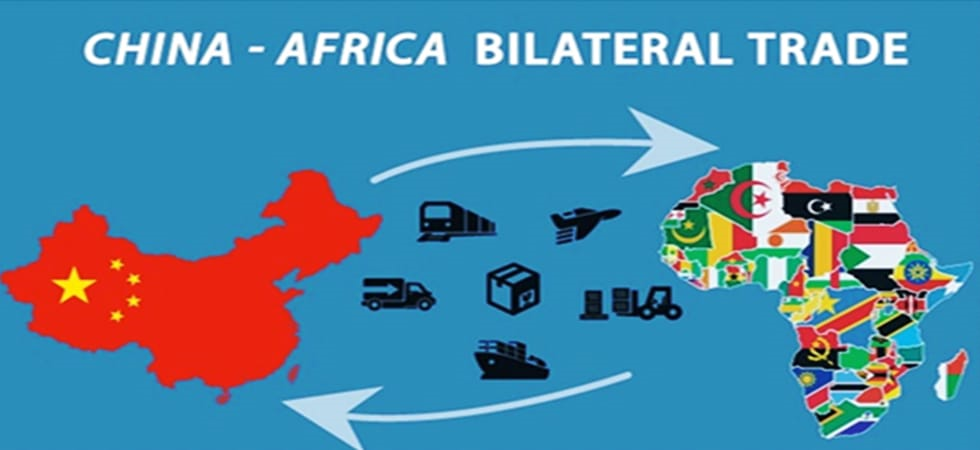
By Ibrahim Joenal Sesay
September 06, 2020, (232News)
FREETOWN – The African Continental Free Trade Area (AfCFTA) agreement was signed by Africa’s 54 countries excluding Eritrea. AfCFTA took effect on May 30, and was officially launched on July 7. According to the African Union (AU), when all of its 55 members sign up, the AfCFTA will be the world’s largest free trade area (FTA) in terms of membership since the founding of the World Trade Organization, and will be a huge market covering 1.2 billion people and a collective GDP of $2.5 trillion.
Undoubtedly, the FTA agreement is an epoch-making event in promoting African integration. It was signed against the backdrop of rising anti-globalization and trade protectionism, and signals African countries’ resolve to cope with the challenges brought about by a changing international environment through strengthening economic integration.
China has consistently supported African integration. Besides building the AU Headquarters in Addis Ababa to improve the working conditions for the staff engaged in promoting African integration, China has also strengthened cooperation with Africa in three pragmatic areas of infrastructure construction, industrial development and market integration, aiming to promote the development of the free trade area on the African continent. In terms of industrial development, Chinese President Xi Jinping announced 10 China-Africa cooperation plans and eight major initiatives at the Johannesburg Summit of the Forum on China-Africa Cooperation (FOCAC) in December 2015 and the FOCAC Beijing Summit in September 2018 respectively, both backed by $60 billion of financial support. These measures have supported industrial development, trade and investment, human resource development and training, as well as poverty alleviation and green development in Africa.
In the area of infrastructure construction, China and the AU signed the memorandum of understanding (MoU) on China-Africa infrastructure cooperation on January 27, 2015. According to the MoU, China would strengthen cooperation with African countries in railway, highway, regional aviation and industrialization under the framework of Agenda 2063, so as to promote African integration. Till date, Chinese companies have started construction of railways, airports, industrial parks and ports in countries such as Ethiopia, Djibouti, Kenya and Nigeria, promoting the realization of African integration with their actions.
With the AfCFTA and progress in African integration, the potential of the African market will be further realized, which will greatly deepen and intensify China-Africa cooperation in industrial capacity. The improvement of business environment in Africa will raise its appeal to Chinese investors.
Sufficient market size is important for the development of industrial parks and economic and trade cooperation zones. Thus, the creation of a big single market and development of large-scale economies in Africa will further promote China-Africa industrial cooperation.
So far, China has established 25 economic and trade cooperation zones on the African continent. Qian Keming, Vice Minister of Commerce of China, recently indicated that the 25 cooperation zones are boosting Africa’s industrialization, job creation and growth in exports. Statistics show that the 25 cooperation zones have created more than 40,000 jobs and contributed taxes of nearly $1.1 billion to host countries. In the coming three years, China will build and upgrade a number of economic and trade cooperation zones to promote industrial development in Africa, and encourage Chinese enterprises to increase investment in African industry, especially in sectors such as manufacturing, agriculture, financial services, trade and logistics and digital economy.
The creation of the AfCFTA will energize China-Africa trade. Customs data show that China-Africa trade reached $204.2 billion in 2018, a year-on-year increase of 20 percent. China exported $104.91 billion to Africa and imported $99.28 billion, up 10.8 percent and 30.8 percent year on year respectively. China’s trade surplus was $5.63 billion, a decrease of 70 percent. China has been the largest trade partner of Africa for 10 years in a row.
At the FOCAC Beijing Summit, President Xi specially mentioned that China would launch a trade facilitation initiative, aiming to enhance China-Africa trade and intra-Africa trade. China continues to expand imports from Africa and welcomes African countries to raise their exports to China, so as to share the benefits of China’s development. China would increase imports, particularly non-resource products, from Africa, so as to help Africa improve its export capacity and trade integration, and support modernization of customs and quality inspection mechanisms in Africa.
“We support the building of the AfCFTA and will continue to hold free trade negotiations with interested African countries and regions,” stressed H.E. President Xi Jinping.
Before the opening of the FOCAC Beijing Summit, China had concluded negotiations on the free trade agreement with Mauritius, making a breakthrough in China-Africa free trade area cooperation.
In the future, China should grasp the opportunity presented by the AfCFTA to launch free trade negotiations with more African countries and regional organizations, with a view to transforming and upgrading China-Africa trade. This way, China and African countries can join hands to cope with new challenges brought by globalization and create a better future.

